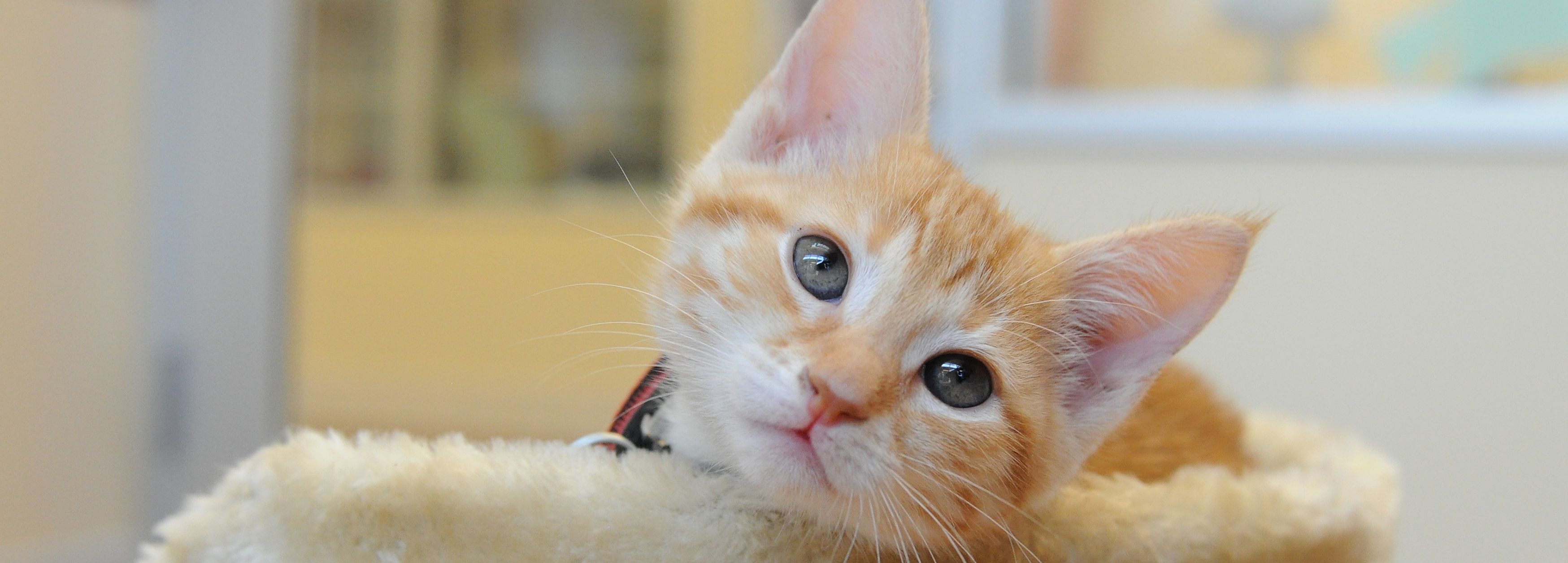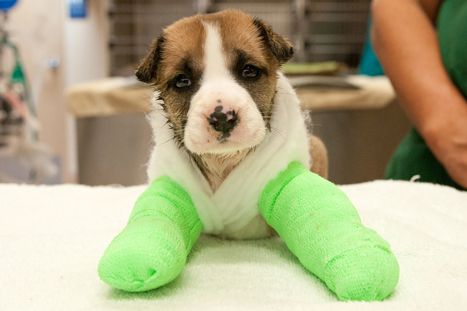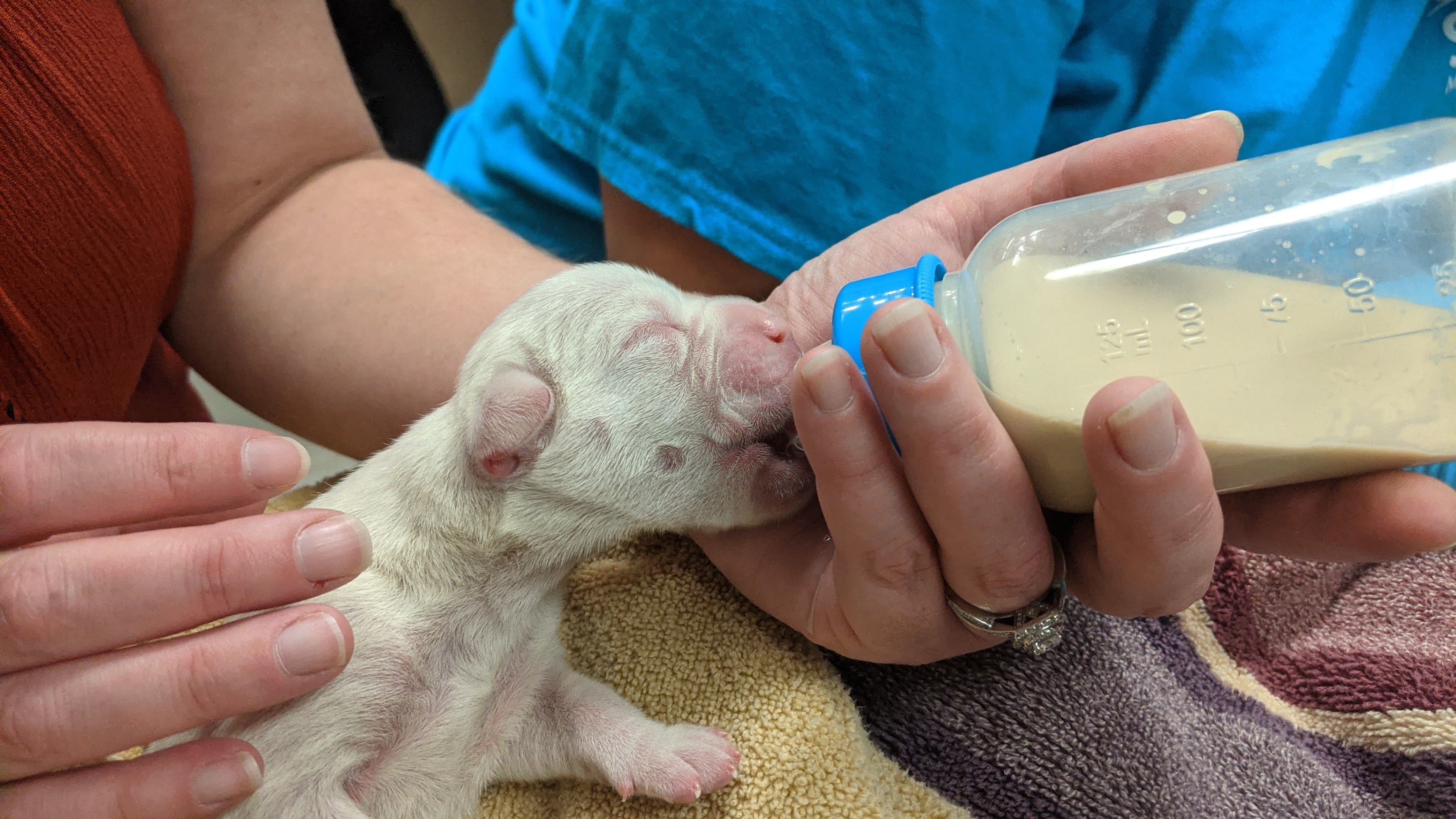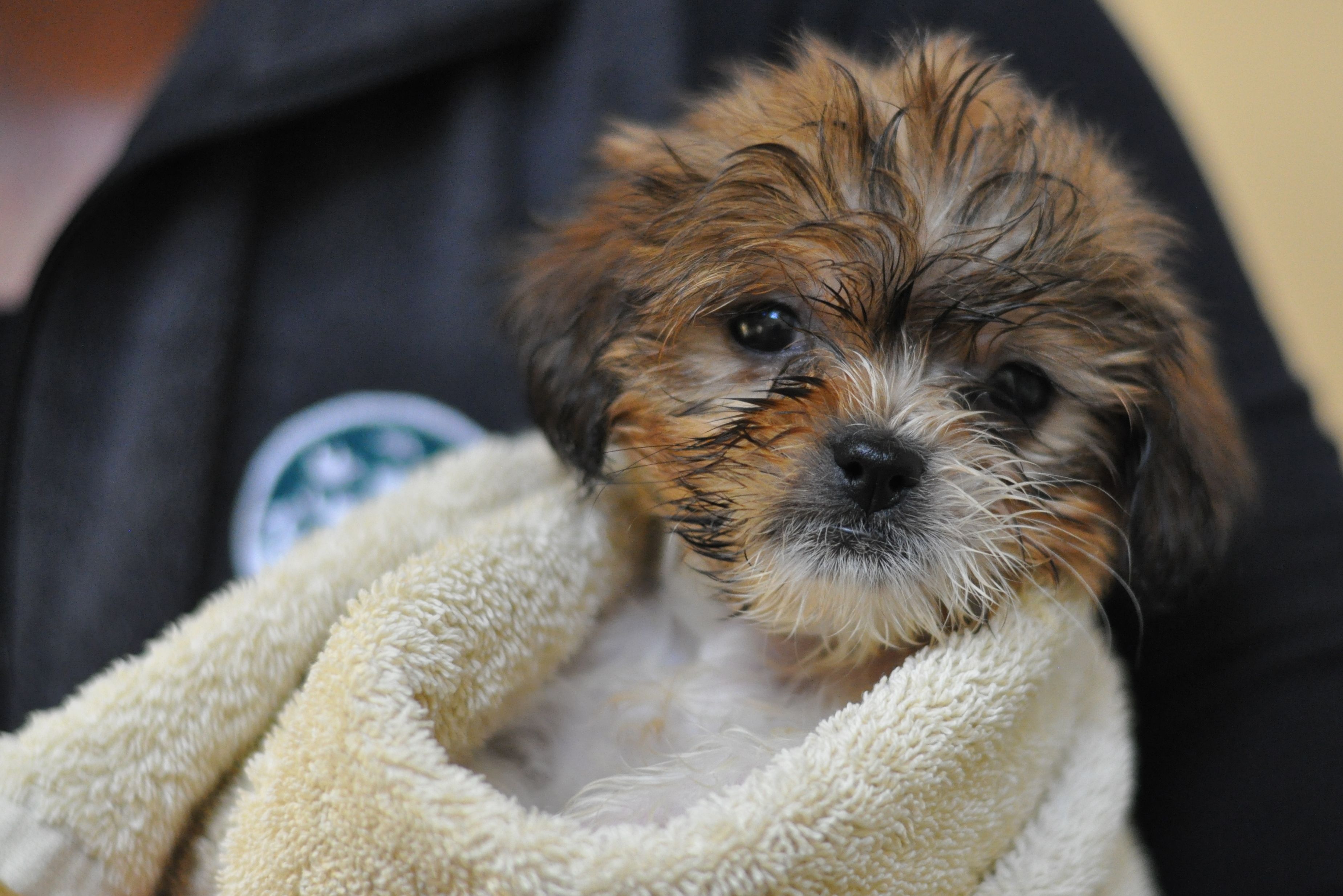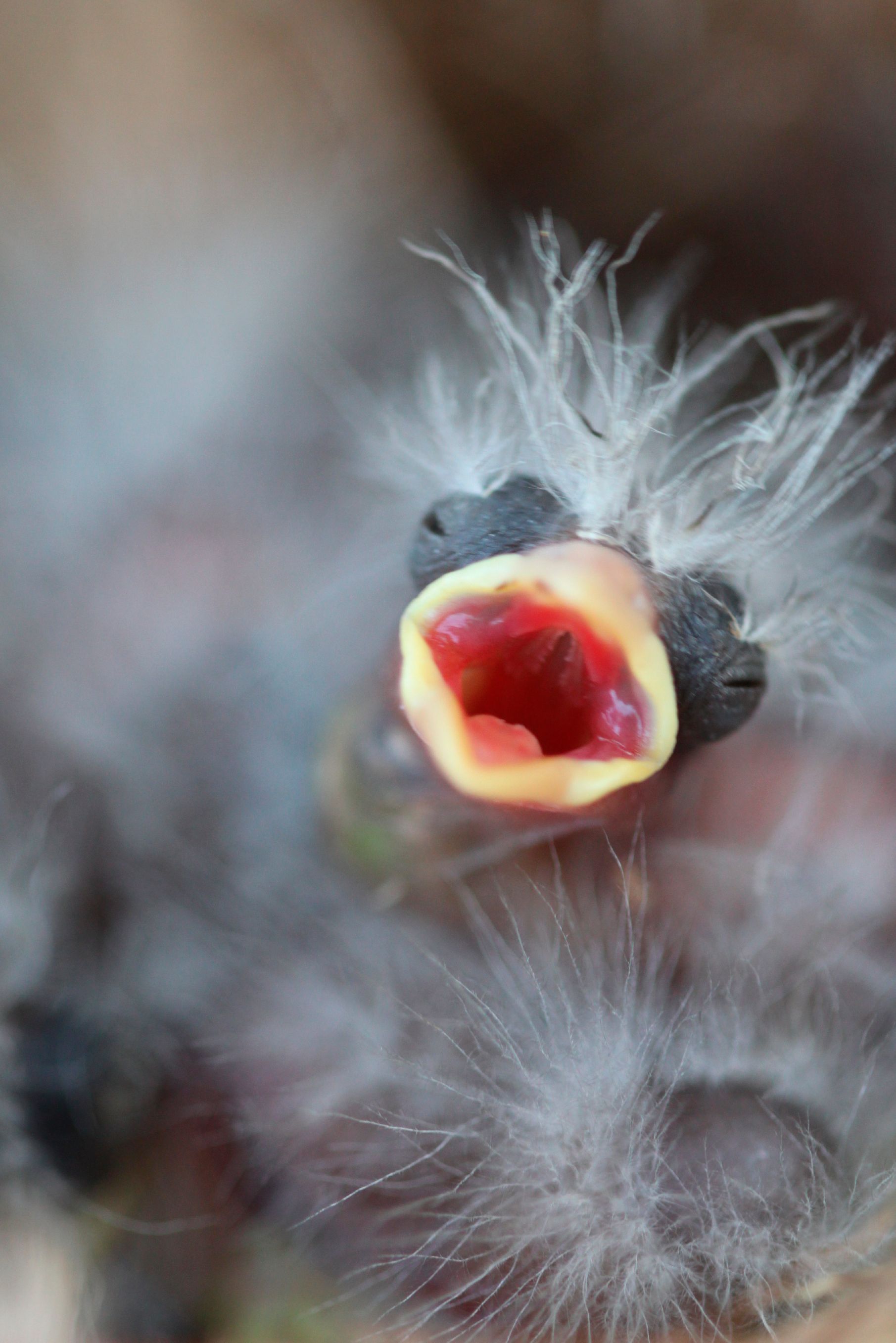
The SPCA Wildlife Rescue and Rehabilitation Center is currently caring for hundreds of wild patients, including baby birds and mammals. Most baby birds need to be fed every 30 minutes from 7 am to 7 pm, adding up to over 500 feedings each day. This vital rescue work is made possible by your donations.
Many of the birds who come to us this time of year are fledglings who are mistakenly taken away from their attentive parents. The fledgling process is a precarious but important and natural part of a bird’s development. Although the fledgling may sometimes appear to be an injured bird, downy feathers and parents tending to it signify that it is a healthy fledgling.
What To Do if You Find a Baby Bird:
- If you find an uninjured baby bird on the ground with few or no feathers and can see his nest, try placing him back. It is a myth that birds will reject their young if you touch them. Watch the baby from a distance to see if his parents come back to feed him. If parents do not return, or if the bird is injured, call the SPCA Wildlife Center for help.
- Birds have very specialized diets, so do not attempt to feed the baby yourself.
- If the bird has some downy feathers and is hopping on the ground but not flying, he is most likely a fledgling.
Fledglings:
- Fledglings are baby birds that are found on the ground, are already feathered, and are able to hop, but are not yet ready to fly.
- These young birds are sometimes mistaken for a bird with a broken wing.
- Fledglings can be as large as the parents and usually have some visible downy feathers.
- If you see a bird that you think might be injured, take time to observe him. If he is a fledgling, you will soon see his parents tending to him. This is a very important time for the young birds to learn by observing their parents and it won’t be long until he is able to fly.
How You Can Help:
- Donate to help animals rescued by your SPCA: SPCAmc.org/donate
- Leave fledglings with their parents. This is a natural and essential part of the baby bird growing cycle. Learn more: SPCAmc.org/baby-birds
- Keep cats indoors. Many of the babies rescued this year were caught by cats, and sadly, the majority of those did not survive due to their injuries.
- Call us when you see injured wildlife in need anywhere in Monterey County.
As our local wild baby season takes place on the Central Coast, we ask our community to please call us first with any wildlife questions or concerns. The SPCA Wildlife Center often receives uninjured baby wild animals brought to us by concerned citizens who are actually not in need of rescue. Please do not disturb or feed local wildlife. Thank you for helping our local wildlife thrive!






